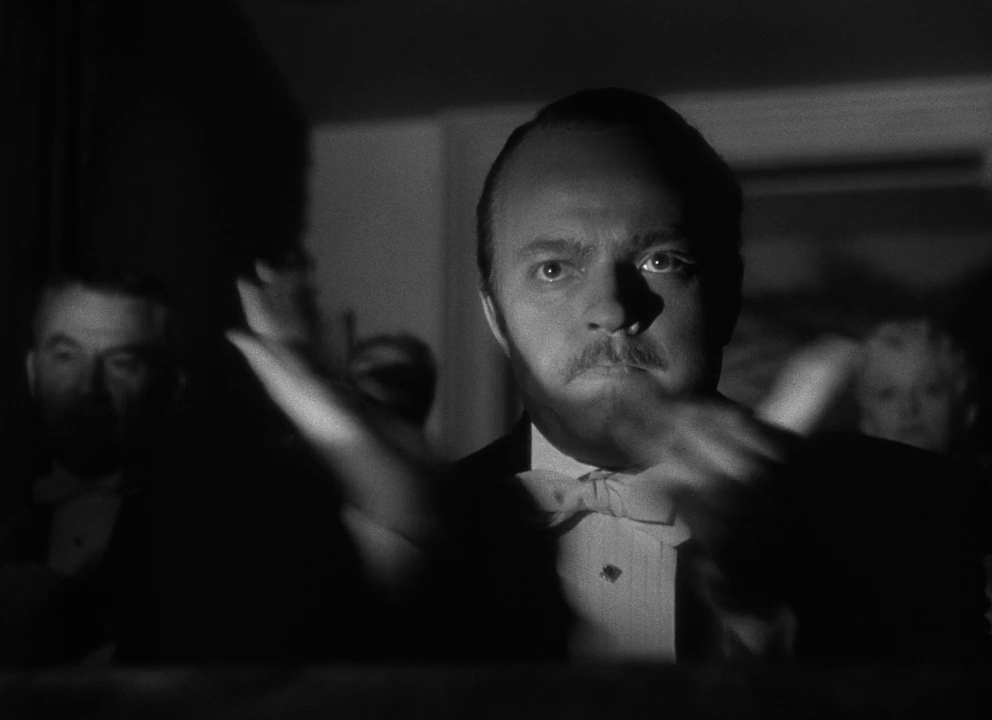Introducing what cinephiles all over the world hail the greatest movie ever made! Orson Welles’ Citizen Kane is about the mystery surrounding a successful newspaper magnate’s last word which is discovered through his life story.

Charles Foster Kane is a successful newspaper magnate who gets everything that a man in power would want. At a young age, he was sent to live with this banker to learn how to be a top man, became a successful newspaper publisher, got married a couple of times, had a child, and lived a life of luxury. So, why wasn’t that enough by the time he died? Newsreels wanted to solve the meaning behind Kane’s last word “Rosebud” before he died. Could that be what he called one of his wives? A pet? A friend of his? Who is Rosebud?! Certainly, you’ll know the answer by the end of the movie.

Can you believe the genius behind this movie was only 25?! Orson Welles starred, produced, directed, and co-wrote this movie with Herman J. Mankiewicz. To be able to create a masterpiece at only 25 is very impressive. Welles was known for bringing to life many innovative filmmaking techniques. For example, deep focus is when you only see what the director wants you to see. Just like in the shot when you see Young Charles playing with his sled, the banker and his mother talking. Welles wanted us to pay attention to everything we see. The film also featured low-angled shots where the ceiling is visible and montage sequences of Kane’s first marriage. I also like shots like when the lighting reflects Kane’s eyes such as when he watches his second wife singing.
I also think that the aging makeup in “Citizen Kane” was great. You would never believe that the actor portraying Charles Kane was 25 years old even when playing an older version. I also like the message told in the movie how money has a way of changing a person’s innocence. We see Kane starting to look more and more like a giant with those low-angled shots as well as the way he speaks to people like they’re property. As an audience, we can sympathize and relate to Kane once the mystery behind “Rosebud” is revealed.
But of course, “Citizen Kane” without controversy. It seemed like the film was fictionalizing and embellishing the life of William Randolph Hearst who was also a newspaper magnate and publisher. Hearst felt like the movie was portraying the events in his life in an unflattering light such as his affair with silent film star Marion Davies who the character of Susan is a parallel of. Gossip columnist Louella Parsons told her boss, Hearst, about the film and how RKO and Orson Welles were slandering him. She really was a gossip, huh? This piece of gossip caused Hearst to pressure theaters to boycott the film, threaten libel lawsuits, and ordered publications to ignore the film and its advertising. However, Charles Kane was based on a number of powerful men in the early 20th century. As a result of the controversy, the Oscar-nominated documentary “The Battle Over Citizen Kane (1996)” was made.

How unbelievable that the greatest film ever made only won Best Original Screenplay at the Oscars. I also think it’s hard to believe that anyone would know “Rosebud” was his last word if he was alone. But anyways, if you’re in the mood to see a master filmmaker at work, Citizen Kane is your best example.







Pingback: #145 How Green Was My Valley (1941) – Oh, For the Love of 1001 Films!